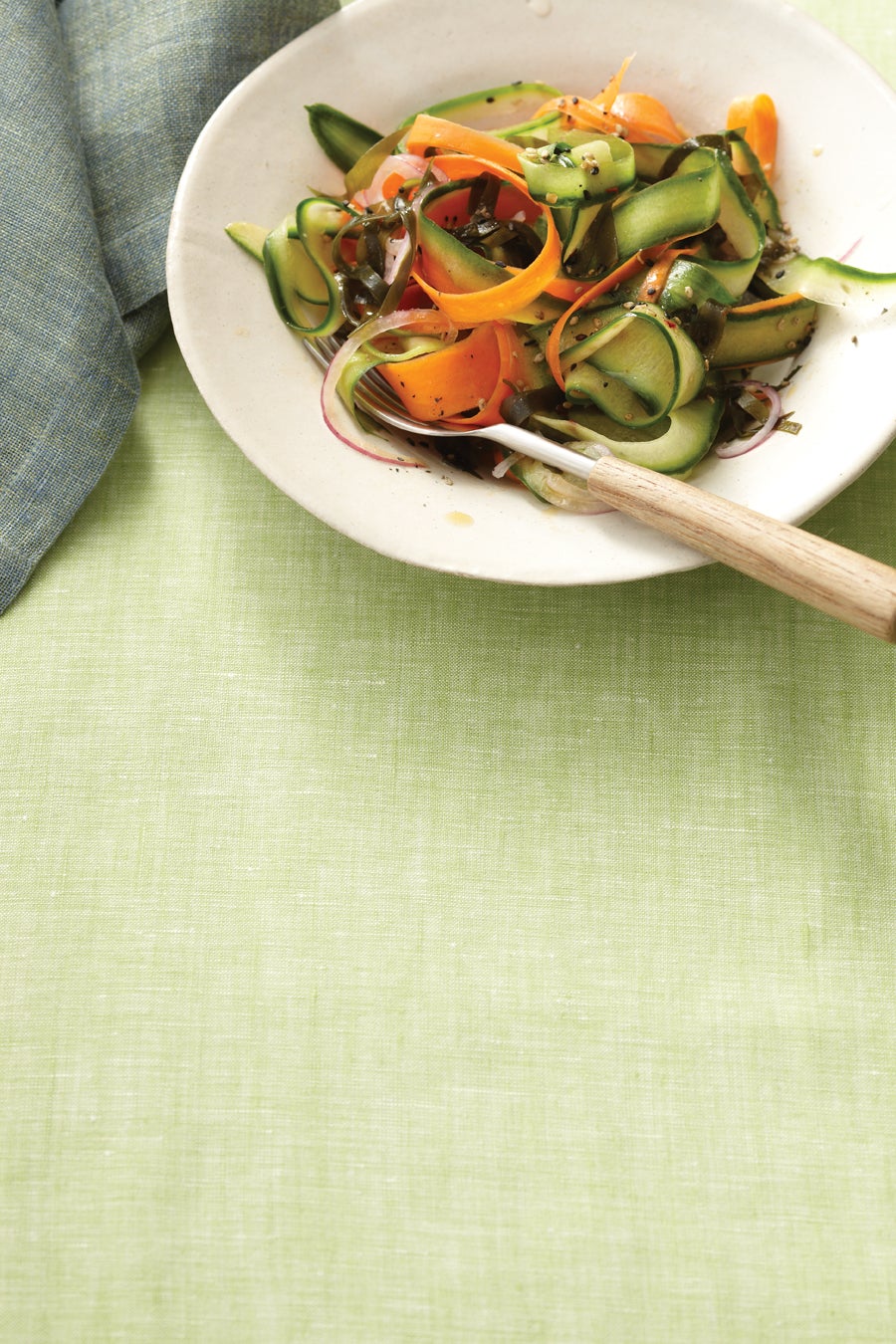Wakame

How It Heals We tend to think of edible greens as something plucked from the soil, but Asian nations have been harvesting wakame (Undaria pinnatifida) and other sea vegetables from the ocean since ancient times, cherishing both their culinary and medicinal qualities.
For many Japanese, a cucumber salad or bowl of miso soup isn’t complete without wakame. Traditional Chinese medicine uses it for blood purification; in Korea, women sip a wakame soup, miyeok guk, after childbirth to help with recovery and milk production. As with other deep-sea treasures, wakame soaks up ocean-borne nutrients as it dances in the currents. “Wakame is especially rich in iodine, essential for healthy thyroid functioning and regulating metabolism,” says Jennifer Adler, MS, CN, a nutrition faculty member at Bastyr University in Kenmore, Wash. The sea veggie is also brimming with bone-building calcium and niacin, “a B vitamin that helps lower cholesterol numbers and generate energy in the body,” she adds.
For all the saltiness wakame imparts on your palate, it’s relatively low in sodium—just 87 milligrams in a 2-tablespoon serving.
Eat It Up You’ll most often find wakame as deep-green dried strips or flakes. Soak the salty-sweet leaves in water until tender and bright emerald, then cut with kitchen shears into desired shapes. Beyond miso soup and cucumber salad, you can toss the soaked strips into tempeh stir-fries, noodle dishes, and slaws to impart umami and intriguing texture. “Adding wakame to cooked beans helps break down the natural sugars, resulting in less gas,” notes Adler.
Wakame can get slimy when overcooked, so it’s best to add it near the end of preparation. A generous sprinkle of wakame flakes can also jazz up scrambled eggs, roasted winter squash, pizza, baked potatoes, and cooked grains. Adler suggests grinding flaked wakame in a spice or coffee grinder and combining the powder with sea salt for use as a seasoning. Or enjoy a slightly salty “green tea” by steeping the flakes in hot water.
Since sea vegetables can soak up toxins from polluted ocean water much like fish do, Adler recommends buying organic wakame from reputable companies that harvest from environmentally sound locations.